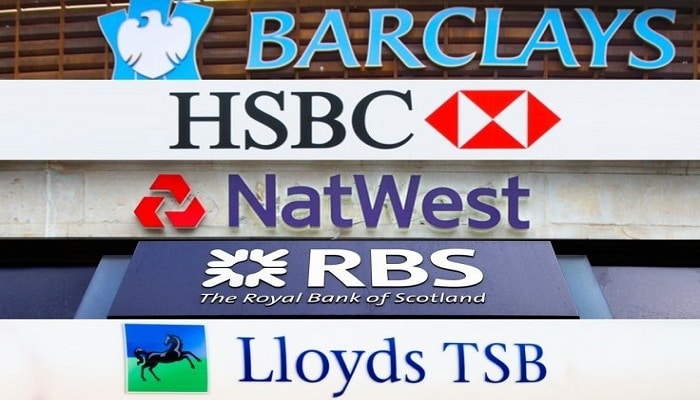Bankers Are Not Heartless: The Human Side of Banking
The financial industry, particularly banking, often carries a reputation for being cold, calculating, and indifferent to human struggles. Movies, news stories, and public opinion frequently paint bankers as individuals who prioritize profits over people, reducing lives to numbers on a spreadsheet. However, this perception is not entirely fair. While banking is inherently a business driven by financial objectives, many bankers go above and beyond to serve their communities, assist struggling individuals, and contribute to economic growth.
This article explores the compassionate and humane side of bankers, illustrating how they balance profitability with social responsibility.
1. The Role of Bankers in Economic Stability
Bankers play a critical role in maintaining economic stability, ensuring that businesses can operate, families can purchase homes, and students can access education. They facilitate loans, manage deposits, and create financial products that help individuals achieve their dreams. Rather than being heartless, they are key players in enabling people to build better futures.
For example, during economic crises, bankers work behind the scenes to implement policies that prevent financial collapse. In 2008, despite the financial meltdown, many bankers helped small businesses restructure loans to avoid bankruptcy. Similarly, during the COVID-19 pandemic, many financial institutions provided relief programs, deferred payments, and helped struggling borrowers get back on their feet.
2. Bankers as Financial Advisors and Educators
Many bankers take on the role of financial advisors, guiding individuals and businesses through complex financial decisions. They provide insights on investment, saving strategies, and debt management, helping clients make informed choices that align with their long-term goals.
Consider personal bankers who assist first-time homebuyers in understanding mortgage options, interest rates, and repayment structures. Instead of simply pushing loans, they assess financial conditions, ensuring customers do not take on debt they cannot handle. Their role is much more than approving or denying loans—it’s about empowering people with financial literacy.
3. Community Initiatives and Social Responsibility
Many financial institutions are deeply involved in corporate social responsibility (CSR) programs. These initiatives include scholarships, community development projects, and financial literacy programs designed to uplift underprivileged groups.
For instance, various banks fund educational initiatives, providing scholarships to students from low-income families. Others support small businesses through microfinance programs, enabling aspiring entrepreneurs to start businesses and contribute to economic growth. Far from being heartless, these initiatives showcase the dedication of financial institutions to social welfare.
4. Loan Forgiveness and Restructuring
While banks are businesses that need to ensure profitability, they often work with struggling clients to restructure loans rather than aggressively pursue repayments. Contrary to the popular belief that banks immediately seize properties upon default, many institutions have dedicated teams to help customers find solutions to financial difficulties.
During challenging times, such as the global financial crisis or individual hardships like job losses, banks often offer repayment flexibility. They provide options such as extending loan terms, reducing interest rates, or allowing temporary payment suspensions, helping clients avoid severe financial distress.
5. Bankers as Crisis Responders
Whenever disasters strike—be it natural calamities, economic downturns, or pandemics—bankers are among the first to respond. They implement relief programs, waive fees, and provide emergency funding to affected individuals and businesses. This was evident during the COVID-19 pandemic when many financial institutions provided zero-interest loans, deferred payments, and financial aid to affected individuals.
Additionally, banks contribute to rebuilding communities after disasters by offering financial aid and support. These efforts reflect the humane aspect of banking that is often overlooked.
6. Personalized Banking Services with a Human Touch
Despite the rise of digital banking, many people still rely on personal relationships with their bankers. A significant number of banking professionals develop long-term relationships with their clients, understanding their financial history, needs, and goals.
For example, local bankers in small communities often go beyond the call of duty to support their clients. They may approve short-term emergency loans based on trust, assist elderly clients with managing their accounts, or help entrepreneurs navigate business expansion strategies. These personal interactions highlight the empathy and commitment bankers exhibit daily.
7. Ethical Banking and Sustainable Investments
Many modern banks are now prioritizing ethical banking and sustainable finance. They invest in green projects, support businesses with strong social impact, and avoid funding industries harmful to the environment or society.
Ethical banking institutions focus on responsible investing, ensuring that funds are allocated to sustainable projects such as renewable energy, affordable housing, and social enterprises. This movement showcases how bankers are actively working towards a better future, balancing profit with purpose.
8. Changing the Narrative: Bankers Are People Too
The stereotype of bankers as heartless individuals often ignores the fact that they are human beings with families, emotions, and a sense of duty to their communities. Many bankers choose the profession not just for financial rewards but for the opportunity to help individuals achieve financial security and prosperity.
Bankers frequently encounter clients facing difficult financial situations and do their best to provide solutions. They experience the emotional burden of denying a loan to a struggling family, but they also share the joy of helping someone purchase their first home or successfully start a business. These moments of connection highlight the compassion within the industry.
Conclusion: Banking with Compassion
While it is easy to perceive banking as an industry driven purely by numbers, a closer look reveals a different reality. Bankers play an integral role in economic development, financial education, and community support. They provide financial solutions that empower individuals, work towards ethical investment, and contribute to social welfare initiatives.
The next time you interact with a banker, remember that behind the professional demeanor is a person dedicated to helping others navigate their financial journey. Bankers are not heartless; they are facilitators of dreams, architects of economic stability, and silent supporters of countless individuals striving for a better future.


